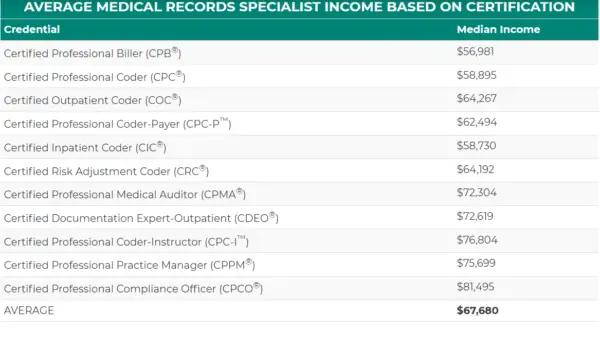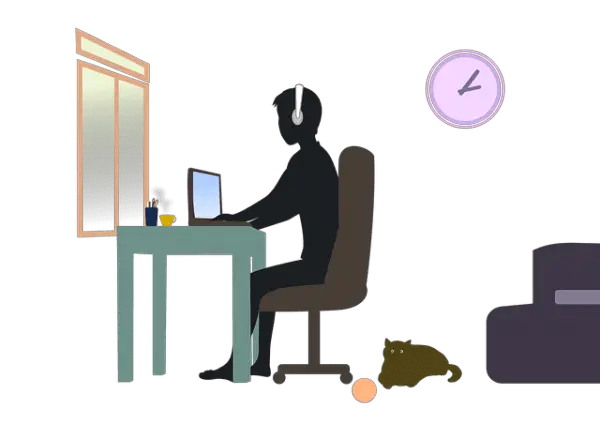If you have a knack for organization and an interest in the healthcare industry, then becoming a medical biller from home may be the perfect career path for you. As a medical biller, you would be responsible for managing and processing healthcare claims and invoices for patients and insurance companies.
In this blog post, we’ll explore the steps you can take to become a medical biller from home, including the skills you need, the certifications you should consider, and the resources available to help you get started in this exciting field.
What Does a Work-From-Home Medical Biller Do?
As a work-from-home medical biller, you will be responsible for processing medical bills and insurance claims for healthcare providers from the comfort of your home or anywhere in the world. The job involves collecting and reviewing patient data, verifying insurance coverage, and submitting claims to insurance companies for reimbursement. The medical biller works closely with healthcare providers to ensure accurate billing and timely payment.
Some of the key responsibilities of a work-from-home medical biller might include:
- Collecting and reviewing patient information to ensure accuracy in billing.
- Verifying the patient’s insurance coverage and determining the extent of their benefits.
- Submit claims to insurance companies in a timely manner to ensure reimbursement and must follow up on unpaid or denied claims to ensure that the healthcare provider receives payment.
- Maintaining accurate records of patient billing and insurance information.
- Communicating with healthcare providers to ensure accurate billing and resolve any billing discrepancies.
How to Become a Work From Home Medical Coder Without Experience
How Much Do Remote Medical Billers Make?

Due to the complex nature of the work of a remote medical biller, medical billers are valued and well compensated. However, their pay might vary depending on location, employer type, experience, and certifications. The average annual salary for a certified professional biller (CPB™) is $56,652. Furthermore, the U.S. Bureau of Labor Statistics recorded that the average salary of a Medical biller is $46,660 annually.
What Skills Does Medical Billing Require?
As a remote medical biller, you will need to have a lot of skills due to the complexity of the job. These skills are needed to help you do a proper job and give you an edge over other job applicants.
- Knowledge of medical terminology and coding: Medical billers must be familiar with medical terminologies and coding systems, such as ICD-10 and CPT codes, to accurately process and submit insurance claims.
- Attention to detail: Accurate billing is critical in healthcare, as errors can result in delays in payment or denial of claims. Medical billers must have a keen eye for detail to ensure that all information is correct and complete.
- Understanding of insurance billing: Medical billers need to have a thorough understanding of insurance billing, including coverage and reimbursement policies, to ensure that claims are processed correctly.
- Communication skills: Medical billers need to communicate effectively with patients, healthcare providers, and insurance companies to resolve billing issues and ensure timely payment.
- Computer proficiency: Medical billing is largely a computer-based task, and medical billers must be proficient in using billing software and electronic health records (EHRs) to process and manage claims.
- Analytical skills: Medical billers need to be able to analyze billing data and identify trends or issues that could affect revenue or cash flow.
- Time management: Medical billers often work under tight deadlines and must be able to manage their time effectively to ensure that claims are processed and submitted on time.
How To Be A Medical Writer With No Experience
How to Become a Medical Biller from Home
1. Education and Training Requirements
To become a medical biller, you’ll need a high school diploma or equivalent. However, many employers prefer candidates who have completed some post-secondary education in medical billing and coding. There are several options for education and training, including:
- Certificate or diploma programs: These programs typically take 6-12 months to complete and focus specifically on medical billing and coding.
- Associate’s degree: An associate’s degree in medical billing and coding typically takes 2 years to complete and covers a broader range of healthcare topics.
- Online courses: There are several online courses available that offer training in medical billing and coding. These courses are often self-paced and allow you to complete the coursework from home.
When selecting an education and training program, be sure to choose one that is accredited by a reputable organization, such as the American Health Information Management Association (AHIMA) or the American Academy of Professional Coders (AAPC).
2. Obtain Certification
While certification is not required to work as a medical biller, it can improve your job prospects and increase your earning potential. There are several certifications available, including the Certified Professional Biller (CPB) and the Certified Medical Reimbursement Specialist (CMRS).
The CPB certification is offered by the AAPC and requires passing an exam and meeting experience requirements. The CMRS certification is offered by the AMBA and requires passing an exam and meet education and experience requirements. These certifications demonstrate your proficiency in medical billing and coding and can make you stand out to potential employers.
3. Gain Experience
To become a successful medical biller, you need to have practical experience. Many employers require candidates to have at least one year of experience in medical billing or coding. You can gain experience by working in a medical office or hospital, volunteering, or completing an internship.
Working in a medical office or hospital allows you to gain experience working with medical professionals, understanding the billing process, and dealing with insurance companies. Volunteering or completing an internship can help you gain practical experience and make connections in the healthcare industry.
4. Building Your Network
Networking is crucial in any career, including medical billing. Joining professional organizations such as the AMBA or AAPC can provide you with access to industry events, continuing education opportunities, and job boards.
Additionally, connecting with other medical billing professionals through social media platforms like LinkedIn can help you build relationships and expand your network.
5. Finding Remote Medical Billing Jobs
There are many online job boards and websites that list remote medical billing jobs. Some popular job boards include Indeed, Glassdoor, and FlexJobs. You can also search for medical billing jobs on healthcare job boards such as HealthcareJobsite.com and Health eCareers.
Networking is also an effective way to find remote medical billing jobs. Joining professional organizations such as the American Association of Professional Coders (AAPC) or the Healthcare Billing and Management Association (HBMA) can provide opportunities to connect with other professionals in the field.
Tools and Software You Might Need as A Remote Medical Biller
As a remote medical biller, you will need certain tools and software to effectively perform your job. Here are some examples:
- Computer/laptop: You will need a reliable computer or laptop with a good internet connection to work remotely.
- Medical billing software: You will need access to medical billing software to enter and process claims. There are many different types of medical billing software available, such as Kareo, AdvancedMD, and PracticeSuite.
- Electronic health record (EHR) system: You will need access to an EHR system to retrieve patient information, such as medical history and insurance details.
- Secure messaging platform: You will need a secure messaging platform, such as Microsoft Teams or Slack, to communicate with other members of the healthcare team.
- Virtual private network (VPN): You may need to use a VPN to securely access the healthcare organization’s network and resources.
- Accounting software: You may need accounting software, such as QuickBooks, to manage invoices and payments.
- Email client: You will need an email client to communicate with patients and insurance companies.
- Web conferencing software: You may need web conferencing software, such as Zoom or Skype, to attend virtual meetings and training.
- Time tracking software: You may need time tracking software, such as Toggl or Harvest, to keep track of the time spent on different tasks.
It is important to note that the specific tools and software you need may vary depending on the healthcare organization you work for and the specific job requirements.
FAQ About Being A Remote Medical Biller
Q: What are the advantages of working as a remote medical biller?
A: Some of the benefits of using a remote medical biller include:
- Cost savings: Hiring a remote medical biller can be more cost-effective than hiring an in-house biller, as you don’t have to provide office space or benefits.
- Increased efficiency: Remote medical billers can work faster and more efficiently than in-house billers, as they don’t have to deal with office distractions or interruptions.
- Flexibility: Remote medical billers can work flexible hours and can often accommodate changes in workload or schedule.
- Access to expertise: By hiring a remote medical biller, you can access the expertise of someone who is highly skilled in medical billing, without having to invest in training an in-house biller.
Q: What are the disadvantages of working as a remote medical biller?
A: Some disadvantages of working as a remote medical biller may include isolation from coworkers and limited opportunities for in-person training and mentorship. Remote workers may also need to provide their own equipment and may face distractions or interruptions at home.
Q: What are the qualifications for a remote medical biller?
A: Qualifications for a remote medical biller typically include a high school diploma or equivalent, and some formal training in medical billing and coding. Some employers may prefer candidates with an associate’s or bachelor’s degree in healthcare administration or a related field
Conclusion
In conclusion, becoming a medical biller from home can be a great career choice for those looking for a flexible and rewarding job. With the rise of remote work, more and more healthcare facilities are turning to telecommuting medical billing professionals to help them manage their billing processes efficiently.
To become a medical biller from home, you need to have the right skills, education, and certifications. It’s important to choose a reputable training program and obtain certifications from accredited organizations to ensure that you have the necessary knowledge and skills to succeed in this field.
While working as a medical biller from home can offer many benefits, it’s important to remember that it’s not a job that can be done without dedication and hard work. You need to be organized, detail-oriented, and able to work independently to succeed in this field.
Overall, if you’re interested in a career in healthcare and enjoy working with numbers and data, becoming a medical biller from home could be the perfect fit for you. With the right training, skills, and determination, you can enjoy a fulfilling and lucrative career as a remote medical billing professional.






